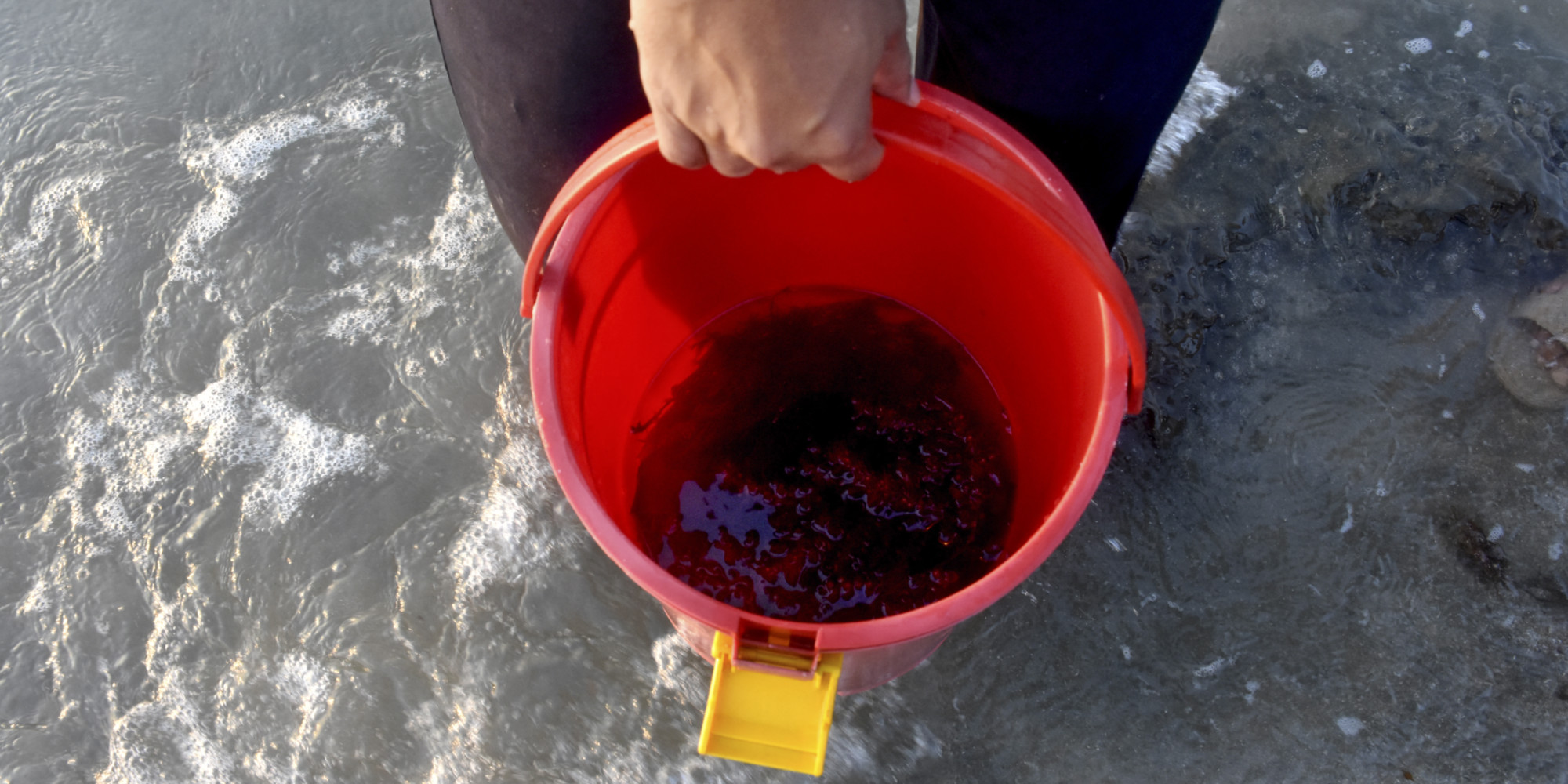Charles Guyard (at Le Croisic), edited by Laura Laplaud 08:07, June 08, 2022
On the occasion of World Ocean Day, Europe 1 is discovering a profession: seaweed picker.
Whether red or green, these "vegetables from the sea" are now on our plates and the gastronomy craze for these marine plants is growing.
On the occasion of World Ocean Day, Europe 1 looks back on the powers of "sea vegetables", algae, nutrient-rich plants grown for our food.
In Loire-Atlantique, the port of Le Croisic is one of the most important suppliers in France thanks to these seaweed gatherers, these sailor-fishermen specializing in the harvesting of seaweed.
Will we eat seaweed crisps?
"That's nori, a red seaweed", describes the seaweed gatherer, Jean-Marie Pédron.
In the bucket he is holding, part of the day's harvest, about twenty kilos of seaweed which he transfers into large vats.
"I put water, because the little periwinkles will come out. Then, I'll put these algae in trays to make the sand fall to the bottom," he explains.
>> Find Europe Matin in replay and podcast here
The purpose of this operation is to make these algae as presentable as possible, because the next day they will be sent to more than 120 top chefs in France who will transform them as they wish.
"They're going to make crisps out of it, they're going to surround fish, they're going to mince it, put it in salads, we can even use it for dessert!"
Algae are also present in our toothpastes
For more than ten years, Jean-Marie Pédron's family has been professional seaweed gatherers.
Their company, Les Jardins de la mer, is not about to know the crisis.
"For a very long time, we consume them without knowing it, in toothpaste, in candies, in dessert creams, in many things", he says.
"But it was in powder form. We used the gelling properties of seaweed. Today, the novelty is that we will find them directly on the plate. We can consider them as vegetables or as condiments," he says.
>> LISTEN AGAIN -
Algae farming: a multifaceted solution to climate change
Marine plants that are increasingly popular, sold between 30 and 40 euros per kilo.
Of the 700 species of seaweed identified, between 12 and 15 are consumed for their nutritional properties.
“Seaweed has everything we need to supplement our diet,” concludes Jean-Marie Pédron.

